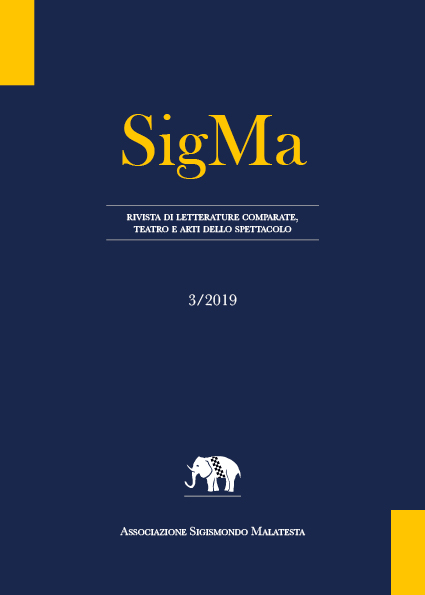Il lavoro dello storico: l’uso della microstoria e del quotidiano. Intervista con John Foot
Abstract
L’argomento del numero monografico della rivista viene affrontato in una lunga intervista con lo storico britannico John Foot, autore di numerosi lavori sulla storia e la cultura italiana, tra i quali: Milano dopo il miracolo. Biografia di una città (2003), Calcio 1898-2007. Storia dello sport che ha fatto l’Italia (2007), La Repubblica dei Matti. Franco Basaglia e la psichiatria radicale in Italia, 1961-1978 (2014), L’Italia e le sue storie (2019). I temi toccati nell’intervista hanno riguardato il ruolo svolto dal quotidiano nella ricerca storica, sia per i campi che per gli strumenti d’indagine. Le domande hanno riguardato l’uso della storia orale, della microstoria, delle testimonianze, della memoria culturale.
Downloads
SigMa pubblica in internet, ad accesso aperto, con licenza:
|
|
CCPL Creative Commons Attribuzione |
L'autore conserva il copyright sul suo contributo, consentendo tuttavia a chiunque "di riprodurre, distribuire, comunicare al pubblico, esporre in pubblico, rappresentare, eseguire e recitare l'opera", purché siano correttamente citati l'autore e il titolo della rivista. L’autore, al momento della proposta di pubblicazione, è inoltre tenuto a dichiarare che il contenuto e l’organizzazione dell’opera è originale e non compromette in alcun modo i diritti di terzi, né gli obblighi connessi alla salvaguardia di diritti morali ed economici di altri autori o di altri aventi diritto, sia per testi, immagini, foto, tabelle, sia per altre parti di cui il contributo può essere composto. L’autore dichiara altresì di essere a conoscenza delle sanzioni previste dal codice penale e dalle leggi speciali per l’ipotesi di falsità in atti ed uso di atti falsi, e che pertanto Reti Medievali è esente da qualsiasi responsabilità di qualsivoglia natura, civile, amministrativa o penale, e sarà dall'autore tenuta indenne da qualsiasi richiesta o rivendicazione da parte di terzi.

